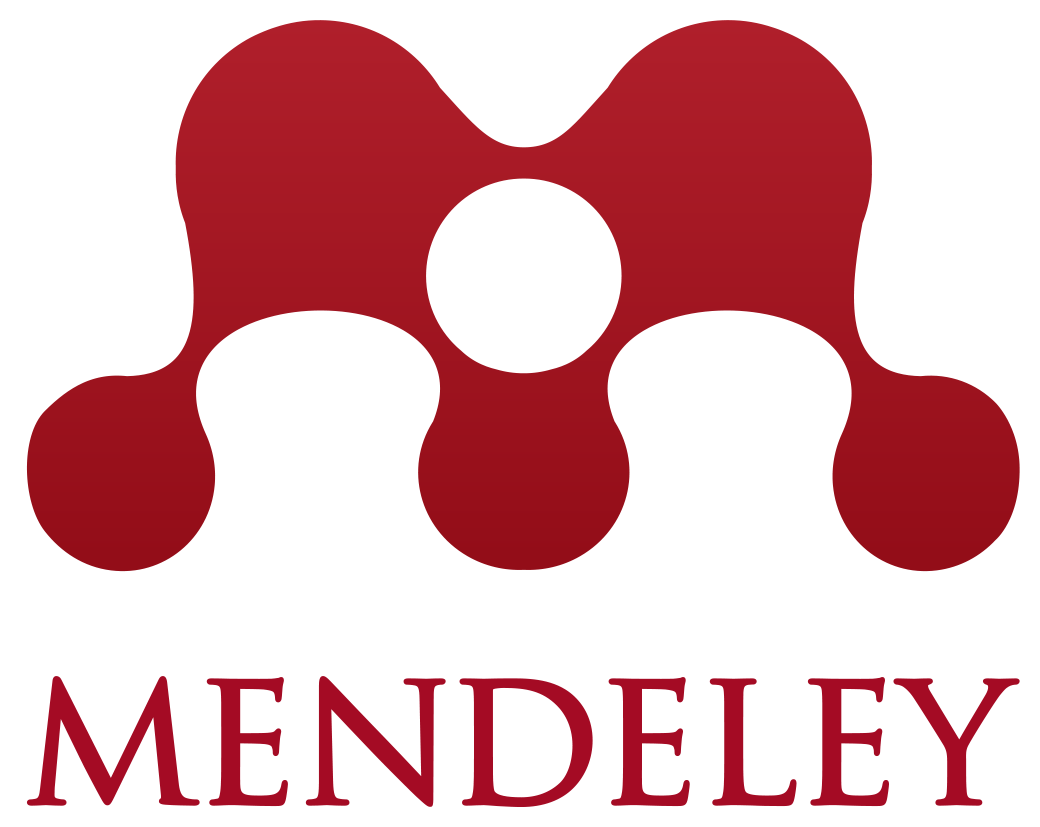Implementation of the WASAKA Learning Model on the Topic of Heat and Temperature
Abstract
This research aims to delineate the implementation of the WASAKA learning model and describe students' responses to this learning model through a one-to-one test. This study employed the Educational Design Research (EDR) methodology, encompassing two stages: the preliminary stage and the formative evaluation stage. Ten students participated in a one-to-one test during a single meeting, focusing on learning heat and temperature topics in the Fundamental Physics lecture. Research instruments included observation sheets and response questionnaires, with data analyzed using descriptive statistics. The results of the data analysis revealed an average score of 5.00 for implementing the WASAKA learning model, categorizing it as "very good." Additionally, students' responses to this learning model were highly positive. The conclusion drawn from this research is that the WASAKA learning model is well-suited for application in Fundamental Physics lectures covering heat and temperature topics.
Keywords
Full Text:
PDFReferences
Abidinsyah, A., Ramdiah, S., & Royani, M. (2019). The implementation of local wisdom-based learning and HOTS-based assessment: Teacher survey in Banjarmasin. JPBI (Jurnal Pendidikan Biologi Indonesia), 5(3), 407–414.
Adhi, D. T., Sudarmin, S., & Linuwih, S. (2018). The influence of ethnoscience-based learning video to improve students’ understanding of green chemistry in integrated science subject. Journal of Innovative Science Education, 7(1), 36–44.
Aiken, L. R. (1985). Three coeffcients for analyzing the reliability and validity of ratings. Educational and Psychological Measurement, 45(1), 113–246.
Anderson, L. W. (2013). A Taxonomy for learning, teaching, and assessing: A revision of Bloom’s. New York: Pearson.
Arfianawati, S., Sudarmin, & Sumarni, W. (2016). Model pembelajaran kimia berbasis etnosains untuk meningkatkan kemampuan berpikir kritis siswa. Jurnal Pengajaran MIPA, 21(1), 46–51.
Asri, A., Junaid, R., & Saputra, S. (2020). The development of learning model through video documentary to improve environmental knowledge of coastal residents of Palopo City, Indonesia. Jurnal Pendidikan IPA Indonesia, 9(3), 396–407.
Astuti, I. A. D., & Bhakti, Y. B. (2021). Kajian etnofisika pada tari piring sebagai media pembelajaran fisika. In Prosiding Seminar Nasional Sains Sinasis, 2, 477–482.
Fautin, S., Salam, A., & Dewantara, D. (2020). Pengembangan bahan ajar fisika berbasis multimodel pada topik teori kinetik gas. Jurnal Ilmiah Pendidikan Fisika, 4(3), 111–125.
Febriani, E. R., Sudarmin, S., & Alimah, S. (2020). Local wisdom learning approach towards students learning outcomes. Journal of Primary Education, 9(2), 197–205.
Ghaida, G., Zainuddin, Z., & Salam, A. (2021). Pengembangan bahan ajar fisika menggunakan model pogil dengan strategi ARCS untuk melatih keterampilan proses sains peserta didik. Jurnal Ilmiah Pendidikan Fisika, 5(2), 138–152.
Hapid, A. (2021). Meningkatkan hasil belajar siswa pada mata pelajaran fisika dalam memahami konsep momentum dan impuls melalui pendekatan konstruktivisme. Indonesian Journal of Learning Education and Counseling, 3(2), 230–253.
Damayanti, C., Rusilowati, A., & Linuwih, S. (2017). Pengembangan model pembelajaran ipa terintegrasi etnosains untuk meningkatkan hasil belajar dan kemampuan berpikir kreatif. Journal of Innovative Science Education, 6(1), 116–28.
Maison, M., Safitri, I. C., & Wardana, R. W. (2019). Identification of misconception of high school students on temperature and calor topic using four-tier diagnostic instrument. Edusains, 11(2), 195–202.
Masgumelar, N. K., & Mustafa, P. S. (2021). Teori belajar konstruktivisme dan implikasinya dalam pendidikan dan pembelajaran. GHAITSA: Islamic Education Journal, 2(1), 49–57.
Mayub, A. (2020). Efektivitas ICT belajar fisika mahasiswa melalui program pembelajaran fisika berbasiskan. PENDIPA Journal of Science Education, 5(1), 40–49.
Mellenia, R. P. A., & Admoko, S. (2022). Pengembangan lembar kerja peserta didik pembelajaran diskusi berbasis pola argumentasi toulmin untuk melatihkan keterampilan argumentasi dan berpikir kritis. Jurnal Ilmiah Pendidikan Fisika, 6(2), 313–327.
Mokalu, V. R., Panjaitan, J. K., Boiliu, N. I., & Rantung, D. A. (2022). Hubungan teori belajar dengan teknologi pendidikan. Edukatif : Jurnal Ilmu Pendidikan, 4(1), 1475–1486.
Nadilla, D. F. (2017). The Life Philosophy of the Banjarese as a Value Education in Learning History. YUPA: Historical Studies Journal, 1(2), 123–136.
Parmiti, D. P., Rediani, N. N., Antara, I. G. W. S., & Jayadiningrat, M. G. (2021). The effectiveness of local culture-integrated science learning through project-based assessment on scientific attitudes and science process skills of elementary school students. Jurnal Pendidikan IPA Indonesia, 10(3), 439–446.
Rahayu, C., Eliyarti, E., & Festiyed, F. (2019). Kepraktisan perangkat pembelajaran berbasis model generative learning dengan pendekatan open-ended problem. Berkala Ilmiah Pendidikan Fisika, 7(3), 164–176.
Ratri, W. A., & Azhar, E. (2022). Analisis kesalahan siswa dalam menyelesaikan soal tipe hots menggunakan prosedure newman. Jurnal Pendidikan Tambusai, 6(2), 15447–15456.
Sarbaini, S. (2014). Dari wasaka menuju taluba: konseptualisasi nilai-nilai luhur suku banjar sebagai sosok karakter harapan “urang banuar” perspektif etnopedagogi. Proceeding International Seminar on Character Education: Building Nation Character Through Education, 537–542.
Syaifullah, A., & Surawardi, S. (2020). Wasaka concept implementation in islamic education towards banjar society of South Kalimantan in 4.0 era. Khalifa: Journal of Islamic Education, 4(1), 32–48.
Tessmer, M. (2016). Planning and conducting formative evaluations. London: Taylor & Francis Group.
Ulfah, R. Y., Yuliani, H., Azizah, N., & Annovasho, J. (2022). Deskripsi kebutuhan penilaian terintegrasi higher order thinking skill (hots) di SMA. Jurnal Pendidikan Fisika, 10(1), 23–35.
Wahyunita, I., & Subroto, W. T. (2021). Efektivitas model pembelajaran blended learning dengan pendekatan stem dalam upaya meningkatkan kemampuan berfikir kritis peserta didik. Edukatif: Jurnal Ilmu Pendidikan, 3(3), 1010–1021.
Wati, M., Apriani, R., Miriam, S., & Mahtari, S. (2021). Pengembangan e-modul suhu dan kalor bermuatan kearifan lokal melalui aplikasi sigil. Jurnal Inovasi dan Pembelajaran Fisika, 8(1), 112–121.
Wati, M., Hartini, S., Lestari, N., An’nur, S., & Misbah, M. (2019). Developing a physics module integrated with the local wisdom of baayun maulid to build wasaka character. International Journal of Recent Technology and Engineering, 7(6S5), 720–724.
Widoyoko, E. (2019). Evaluasi Program Pembelajaran: Panduan Praktis bagi Pendidik dan Calon Pendidik. Yogyakarta: Pustaka Pelajar.
Xuto, V. S. (2019). Local wisdom related to stem education local wisdom related to stem education. Journal of Physics: Conf. Series, 1340 (2019), 1–5.
DOI: https://doi.org/10.20527/jmscedu.v4i1.8466
Refbacks
- There are currently no refbacks.

This work is licensed under a Creative Commons Attribution 4.0 International License.

Journal Of Mathematics Science and Computer Education is licensed under a Creative Commons Attribution-ShareAlike 4.0 International License.









.jpg)
1.png)

